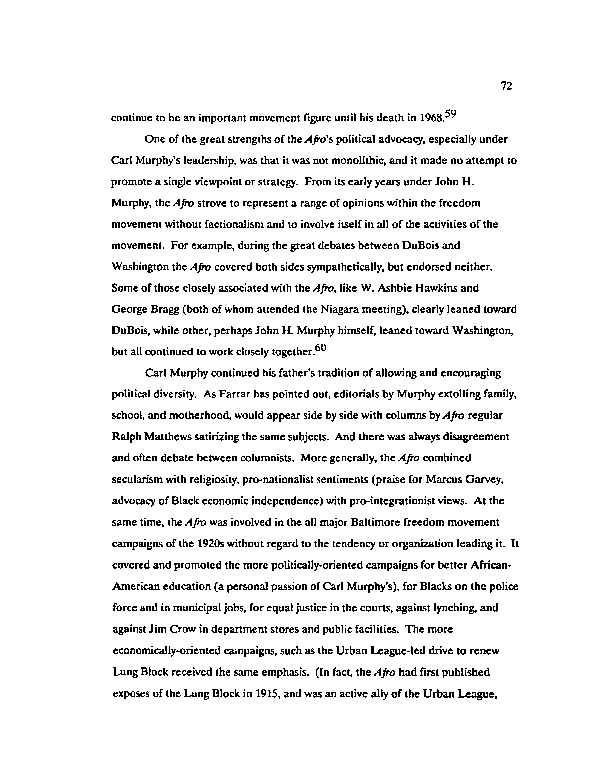|
72
continue to be an important movement figure until his death in 1968.
One of the great strengths of the Afro's political advocacy, especially under
Carl Murphy's leadership, was that it was not monolithic, and it made no attempt to
promote a single viewpoint or strategy. From its early years under John H.
Murphy, the Afro strove to represent a range of opinions within the freedom
movement without factionalism and to involve itself in all of the activities of the
movement. For example, during the great debates between DuBois and
Washington the Afro covered both sides sympathetically, but endorsed neither.
Some of those closely associated with the Afro, like W. Ashbie Hawkins and
George Bragg (both of whom attended the Niagara meeting), clearly leaned toward
DuBois, while other, perhaps John H. Murphy himself, leaned toward Washington,
but all continued to work closely together/*®
Carl Murphy continued his father's tradition of allowing and encouraging
political diversity. As Farrar has pointed out, editorials by Murphy extolling family,
school, and motherhood, would appear side by side with columns by Afro regular
Ralph Matthews satirizing the same subjects. And there was always disagreement
and often debate between columnists. More generally, the Afro combined
secularism with religiosity, pro-nationalist sentiments (praise for Marcus Garvey,
advocacy of Black economic independence) with pro-integrationist views. At the
same time, the Afro was involved in the all major Baltimore freedom movement
campaigns of the 1920s without regard to the tendency or organization leading it. It
covered and promoted the more politically-oriented campaigns for better African-
American education (a personal passion of Carl Murphy's), for Blacks on the police
force and in municipal jobs, for equal justice in the courts, against lynching, and
against Jim Crow in department stores and public facilities. The more
economically-oriented campaigns, such as the Urban League-led drive to renew
Lung Block received the same emphasis. (In fact, the Afro had first published
exposes of the Lung Block in 1915, and was an active ally of the Urban League,
|

